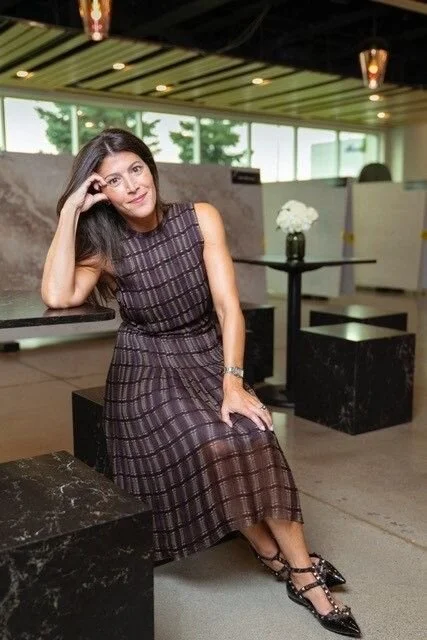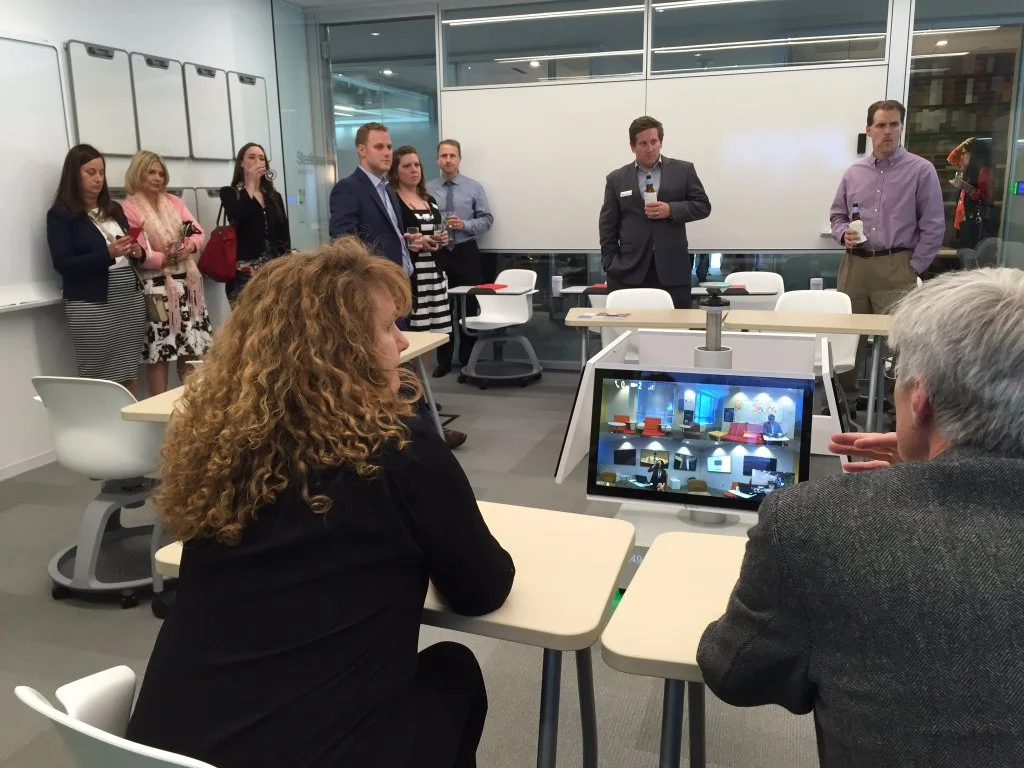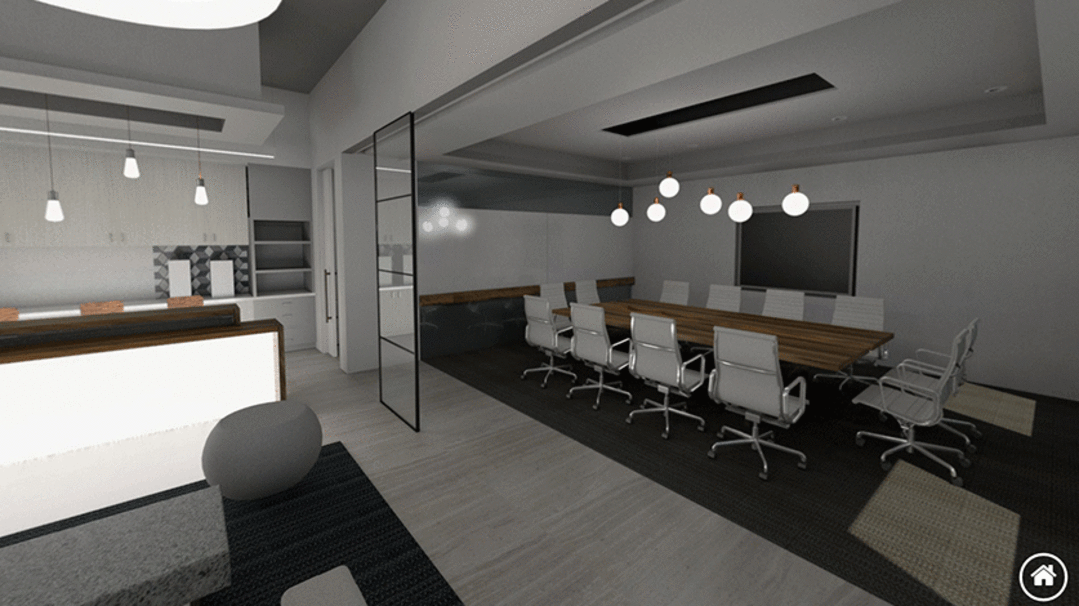It is rare for business software to arouse emotion besides annoyance. But some positively gush about how Slack has simplified office communication. Instead of individual e-mails arriving in a central inbox and requiring attention, Slack structures textual conversations within threads (called “channels”) where groups within firms can update each other in real time. It is casual and reflects how people actually communicate, eschewing e-mail’s outdated formalities, says Chris Becherer of Pandora, an online-music firm that uses Slack.
Kontor Draws $4.6M for Office Interior Designs - some how
HOW VIRTUAL REALITY WILL SHAPE REAL ESTATE, PLANNING AND SUSTAINABILITY
Dreamscape Global’s Sheridan Tatsuno is working on the next big thing: Virtual reality as it applies to critical issues of city planning and sustainability. Sheridan works with Virtual Oresund, a VR platform that provides essential city planning and design tools for real estate professionals and planners. Bisnow spoke with him about the promise of VR and how it can change real estate.
9 in 10 UK office workers stressed by meeting room technology
Meeting room technology which does not work seamlessly is a huge hindrance for productivity, with 86 percent experiencing serious “meeting stress” when grappling with it during meetings, according to new research from Vanson Bourne and Barco. Among the biggest challenges for UK employees were sharing content and screens, and finding the right cables to connect to in-room devices. In trying to deal with tech problems, staff are wasting significant amounts of their valuable time: 60 percent try to fix problems themselves, 49 percent call IT/tech support, 30 percent end up giving up with the tech and going to their plan B. 15 percent even postpone meetings until technology problems can be fixed. The vast majority (90 percent) actually pre-prepare for technology failures: preparing handouts as alternatives to tech, coordinating with IT in advance, and 44 percent even do a tech rehearsal. As a result of struggling with technology in meeting rooms, a quarter of UK office workers have missed important deadlines, and some have even missed out on personal opportunities like promotions (7 percent).
Kimball Office Makes a Strategic Investment in a Smart Technology Company
Kimball Office announced today its strategic investment in ShareDesk, a global leader in agile workplace technology and on-demand workspaces. “Our exclusive furniture partnership with ShareDesk is a critical element of our smart workplace strategy”, states Wendy Murray, Director of Marketing for Kimball Office. She added, “Our collaboration with ShareDesk ensures that Kimball Office will be at the forefront of the workplace transformation, which is being fueled by the rapid advancement in technology”.
Video: Carlo Ratti Associati launches "world's first Internet-of-Things sofa" for Vitra
Milan 2016: Italian architect Carlo Ratti has created a system of smart modular seats that can be adjusted with an app or hand gestures into different configurations (+ movie). Carlo Ratti Associati's Lift-Bit furniture system, which the studio claims is the world's first Internet-of-Things sofa, is part of a range of new interactive products for Swiss furniture brand Vitra.
Product Review of Polycom RealPresence Centro: Millennial View
At Enterprise Connect, I was on the lookout for technology that millennials in the workplace would find cool and useful. After visiting many booths and experiencing interesting demos, Polycom’s RealPresence Centro got me the most excited. Here are the reasons why millennials would love the Centro in the workplace.
After numerous delays, Microsoft finally starts shipping its $22K Surface Hub
If you’re in the market for a giant 84-inch 4K touchscreen computer (and have about $22,000 set aside for that), today is a good day. After numerous delays, Microsoft today started shipping its Surface Hub to business customers.
Surface Hub comes in both the giant 84-inch version and a smaller 55-inch HD edition for a relatively affordable $8,999. You’ll still need a stand for them, too, which will set you back another $3,699 for the rolling stand for the 84-inch model and $2,350 for the 55-inch version (or less if you just want to mount your Hub to a wall).
The Intersection of Textiles and Technology
Aaron Betsky looks at implicit gender biases in interior design through a reading of Textile Technology and Design: From Interior Space to Outer Space, a new book from Bloomsbury Academic.
The airport of 2030 and how technology can play a part
The relationship between technology and its impact on human experience has never been more poignant than in a world where we have the instant ability to access information from a myriad of sources, literally at our fingertips.
5 THINGS WE LEARNED AT THE 2016 BUILDING ENERGY SUMMIT
Internet of Things? More like the Internet of everything. According to Cisco research, by 2030, over 500 billion devices will be connected to the Internet. In other words, our buildings are about to start getting really smart.
VR Technology and Interior Architecture Take Center Stage at SXSW
Austin’s SXSW (aka South by Southwest) may be best known for its music and film festivals, but its interactive component is fast becoming a hot ticket, too. The SXSW Interactive Festival showcases digital creativity and emerging technology — and, in a panel by IA Interior Architects this afternoon, how they factor into the design of the built environment and specification.
Yea or Nay? A Nudging, Posture-Correcting App
Sometimes it seems like the app and wearable worlds want to bear the weight of the world's problems on its shoulders. Got a problem? There's probably an app for that.
Virtual Reality for Architecture Predicts Patterns, Drives Business Decisions
The 2016 edition of SXSW Interactive had no shortage of virtual reality demos, including virtual reality as it applies to architecture. On Tuesday, IA Interior Architects and InsiteVR held a panel on the impact that VR has had on the design process and communication with clients.
The new technology workplace
In a world where technology allows us to work anywhere, at any time, those that are enabling this freedom spend more time at their desks than any other industry.
Is the Internet of Things the key to smarter buildings and cities?
CallisonRTKL has been working on a museum project in the Northeast where the Internet of Things (IoT) is part of the conversation about improving the building’s energy and operational efficiency, as well as its visitor and employee comfort.
Beyond Beta: Virtual Reality Supports Empathetic Design
As workplace strategists, we study the people and culture of an organization from the insider’s point of view with ethnographic field visits. Observation periods, focus groups, interviews, activity logs, and surveys are a few methods we use to help understand ways a workplace supports or inhibits the worker and, often times, the company culture. We analyze the collected data—some of which is user-generated through hands-on exercises—and feed key insights into what is known as user-generated, or participatory, design. But this is nothing new. We have engaged in such activities for years to guide our clients to a newly designed workplace that better fits their people, culture, brand, and processes.
How Technology Has Changed Workplace
Recently, while discussing some tweaks to the layout of his own office, I was asked by an investment industry leader, “What’s changed in office designs?” As a leader of workplace design for Financial Service Firms at Gensler, it’s something I think about every day. It’s also a multi-layered issue that can be difficult to distill into boilerplate ready responses. Ironically, this straightforward, off-the-cuff question brought a sudden rush of focus to the complex and always evolving factors currently inciting changes in workplace design practices.
Beyond Beta: Virtual Reality In the Real World
With virtual reality (VR) headsets like the Oculus Rift and HTC Vive shipping to consumers in the very-near future, everyone is eager to find out if 2016 will be the year of VR. For many, VR is still an experiment or in beta, but for the past 16 months, IA has been using VR with great success. In the immediate future, it could spark a paradigm shift in the way our clients communicate with us and experience their designs.
Herman Miller Featured for 12th Year in RobecoSAM Sustainability Yearbook
The RobecoSAM Group has once again selected Herman Miller, Inc., for inclusion in its Sustainability Yearbook, a listing of the world’s most sustainable companies in each industry as determined by their score in the annual Corporate Sustainability Assessment. Companies featured in the yearbook scored in the top 15 percent on the assessment and are considered the most strongly positioned to create long-term shareholder value for investors. This is Herman Miller’s 12th consecutive year appearing in the yearbook, earning a “Bronze Class” distinction for 2016.

























